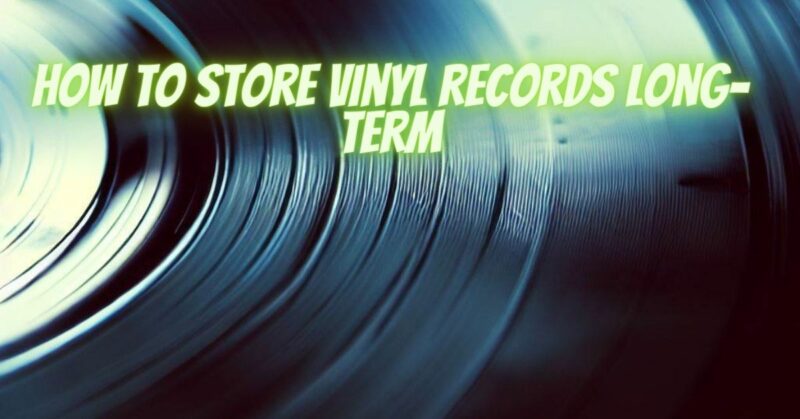Vinyl records are not only cherished sources of music but also historical artifacts that deserve careful preservation. Storing your vinyl records correctly is essential to maintain their sound quality and physical condition over the long term. This article provides a comprehensive guide on how to store vinyl records for extended periods, ensuring that your collection remains in pristine shape for years to come.
The Importance of Proper Storage
Vinyl records are susceptible to damage from environmental factors, mishandling, and improper storage. To safeguard their integrity and ensure optimal playback quality, it’s crucial to create a suitable storage environment.
Step-by-Step Guide to Long-Term Storage
1. Clean the Records: Before storing your vinyl records, make sure they are clean. Dust, debris, and fingerprints can degrade sound quality and cause permanent damage over time. Use a carbon fiber brush or an anti-static record cleaning brush to remove surface particles.
2. Invest in Inner Sleeves: Replace original paper or worn inner sleeves with high-quality anti-static inner sleeves. These sleeves prevent scratches and static buildup, preserving the record’s surface.
3. Outer Sleeves for Protection: Place the sleeved records in transparent polyethylene or polypropylene outer sleeves. These outer sleeves protect against dust, moisture, and physical damage.
4. Vertical Storage: Store your records vertically, similar to books on a shelf. This prevents warping and puts less pressure on the grooves.
5. Sturdy Shelving or Record Storage Units: Use solid, sturdy shelves or dedicated record storage units to prevent excessive weight and stress on the records. Avoid overpacking shelves to ensure easy access.
6. Avoid Direct Sunlight and Heat: Store your records in a cool, dry place away from direct sunlight and heat sources. Prolonged exposure to light and heat can warp records and cause fading of album covers.
7. Control Humidity: Maintain a stable humidity level in the storage area. Excessive humidity can lead to mold growth, while very low humidity can cause records to become brittle.
8. Temperature Considerations: Store records in an area with a consistent temperature. Extremes in temperature can cause warping, and sudden changes can damage the records.
9. Prevent Piling: Avoid stacking records on top of each other horizontally, as this can lead to warping. If you must stack, use dividers to support the weight.
10. Avoid Overcrowding: Leave some space between records to allow for air circulation and ease of removal. Overcrowding can lead to accidental damage when trying to retrieve a record.
11. Handling Carefully: When accessing or removing records, handle them by the edges to avoid touching the grooves or the playing surface.
12. Regular Inspection: Periodically inspect your stored records for any signs of damage or deterioration. Address any issues promptly to prevent further deterioration.
Proper long-term storage of vinyl records requires attention to detail, care, and the right environmental conditions. By following these steps and incorporating these practices into your storage routine, you can ensure that your vinyl collection remains a source of joy and pristine sound quality for generations to come. A commitment to proper storage demonstrates your dedication to preserving the magic of vinyl for both current and future music enthusiasts.

